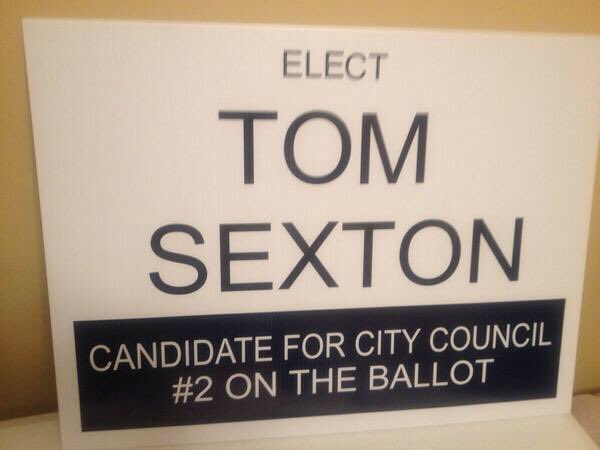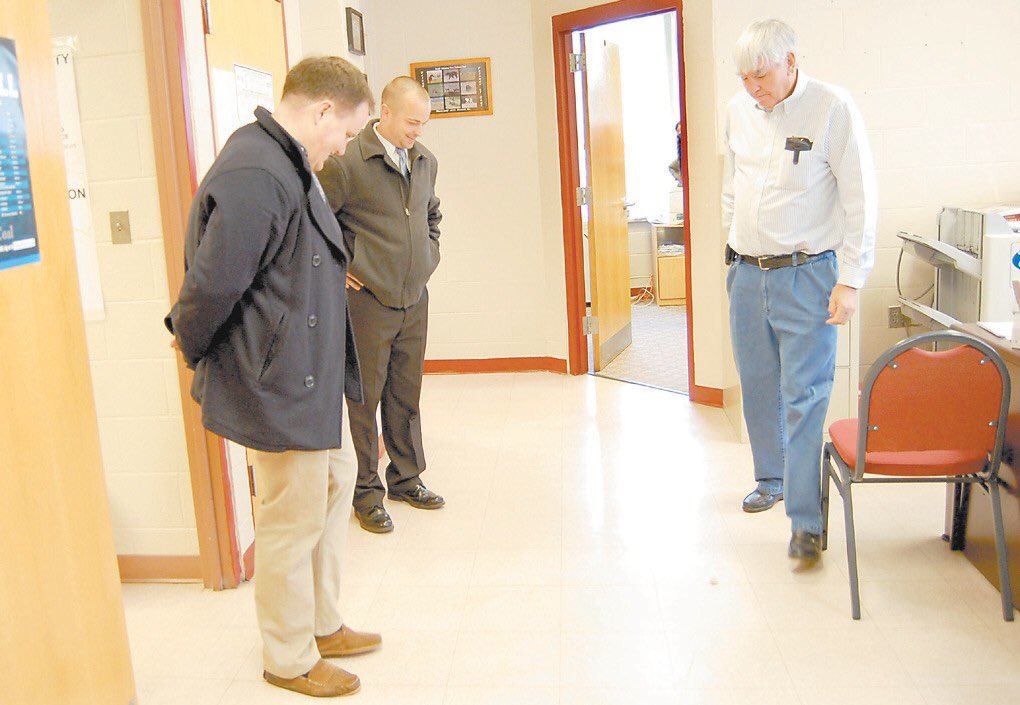In 2012, I was elected to the Whitesburg, Kentucky city council on the flip of a Sacagawea dollar.
A few months before the election, years before my eventual ascent up from the dirty bath water of liberalism, I had been inspired by a flowery talk I heard Bill Clinton give about the importance of public service when I was working at his Presidential library in Little Rock, Arkansas. My job there was mostly to deflect visiting Boomers’ inquiries about Monica Lewinsky and to chide their grandkids when they’d try to touch expensive, diamond-encrusted gifts to Clinton from Bono and the Saudi royals, but somehow I thought I was going to parlay my remuneration as a glorified museum docent into being a rising star in the Democratic party. After Clinton spouted off the usual platitudes about finding “common goals,” he delivered a folksy anecdote that spoke to my impressionable mind. He holds the distinction, Clinton said, of being the only person to ever lose a race for some small, local office in Arkansas that escapes me now, but went on to be President. There was my lane. A few weeks later, I moved back home to Whitesburg and filed my papers to run for office.
Local, nonpartisan races in rural towns are akin running for class President; not so much about policy proposals as capitalizing off of an incumbent’s unpopularity, and they are almost always unpopular. It also doesn’t hurt if people like you. I imagine my door-to-door promise to bring the coal miners and the arts communities together around the vague notion of “common goals” or “making our town better” was pretty insufferable, but I’m nothing if not affable. Besides, there were only eight names in the hat for six seats and one of the incumbents had died. It was a situation the venerable gambler Jimmy “The Greek” Snyder would have called getting your money in when you have the best of it.

I campaigned vigorously, and in retrospect embarrassingly. Going door-to-door handing out cards and promising everything from paved roads to universal healthcare. I registered members of my family who had been living off the grid for years. I even coaxed my girlfriend at the time, who had been living in Las Vegas, to move to Whitesburg to fortify my voting bloc. Normally, I’d rather die than be a try-hard, but I had a mandate. It was preordained on that day in Arkansas.
In the end, the five surviving incumbents all won, and the relative of the deceased sixth seat holder who was the interim council person was uninterested in campaigning. That left it between me and local public defender Matt Butler for all the marbles. As the returns came in it was neck and neck; I worked Butler in West Whitesburg, but he dusted me in the Ermine community. Then local radio announcer Larry Hatton had the final tally: “unless I’m dreaming it looks like Butler and Sexton are knotted up at 262 votes apiece!”
After a short deliberation for a recount, it was officially a tie. “What happens now?” I asked my friend who had gathered with us to listen to the returns. “A runoff? Special election?”
Moments later, the County Court Clerk who presides over elections called to tell me what happens next. “I’m going to need you boys down here next Monday for a coin toss. The ordinance states that ties are decided by the flip of a Sacagawea dollar.”
Monday came, and as Butler and I filed into the courthouse the clerk asked us who wanted to call it. Butler deferred to me.
“Tails never fails.”
The clerk flipped it and I looked down to see the Lemhi Shoshone icon sprinkling seed in the ground. Tails it was.

For weeks following my victory, I couldn’t go to the Dairy Queen without a chorus of regulars in the corner asking me to tell the story about the coin flip to a newcomer. I didn’t pay for a coffee for weeks. Not everyone was so supportive, though. A local news anchor I’d gone to college with tweeted, “Can’t believe an unemployed douchebag who my ex-girlfriend cheated on me in college with won a city council seat.”
It was true that I was an unemployed douchebag, a fact I tried to obscure on the campaign trail by saying I was in “consulting.” All that title really amounted to was making rent by writing papers for basketball players from the local college where my friend coached. I don’t, however, recall ever having a thing with his girlfriend.
My two years in office were pretty forgettable, save for a local liquor magnate offering me bribes in exchange for one of two available liquor licenses he and several others had been vying for. Looking back, I should have taken him up on it.
After my term was up and it was time to run for re-election. I ordered a list from the state Democratic party that had every party member’s name, address, and voting history on it. As I was thumbing through the list, marking off those who had never voted, I came across my ex-girlfriend’s name. We had broken up a year before. While all this was going on, she had frequently voiced her displeasure with her new Eastern Kentucky life. I traced my finger across the page and discovered that there was no “g” beside her name. She had not bothered to vote in the last general election. I felt embarrassed at how selfish I must have been to encourage her to uproot her life and career out west to move back to my hometown with me.
On the other hand, I felt betrayed. Had she shown up to punch one in for me, it wouldn’t have been on Sacagawea to show me the way.
Tom Sexton






